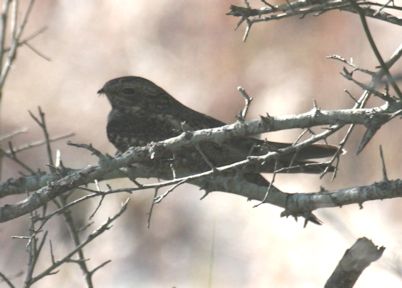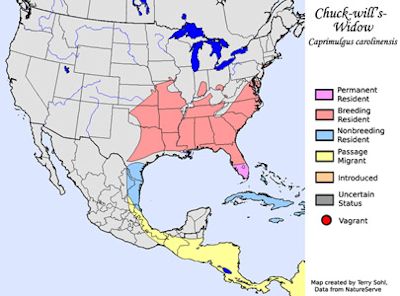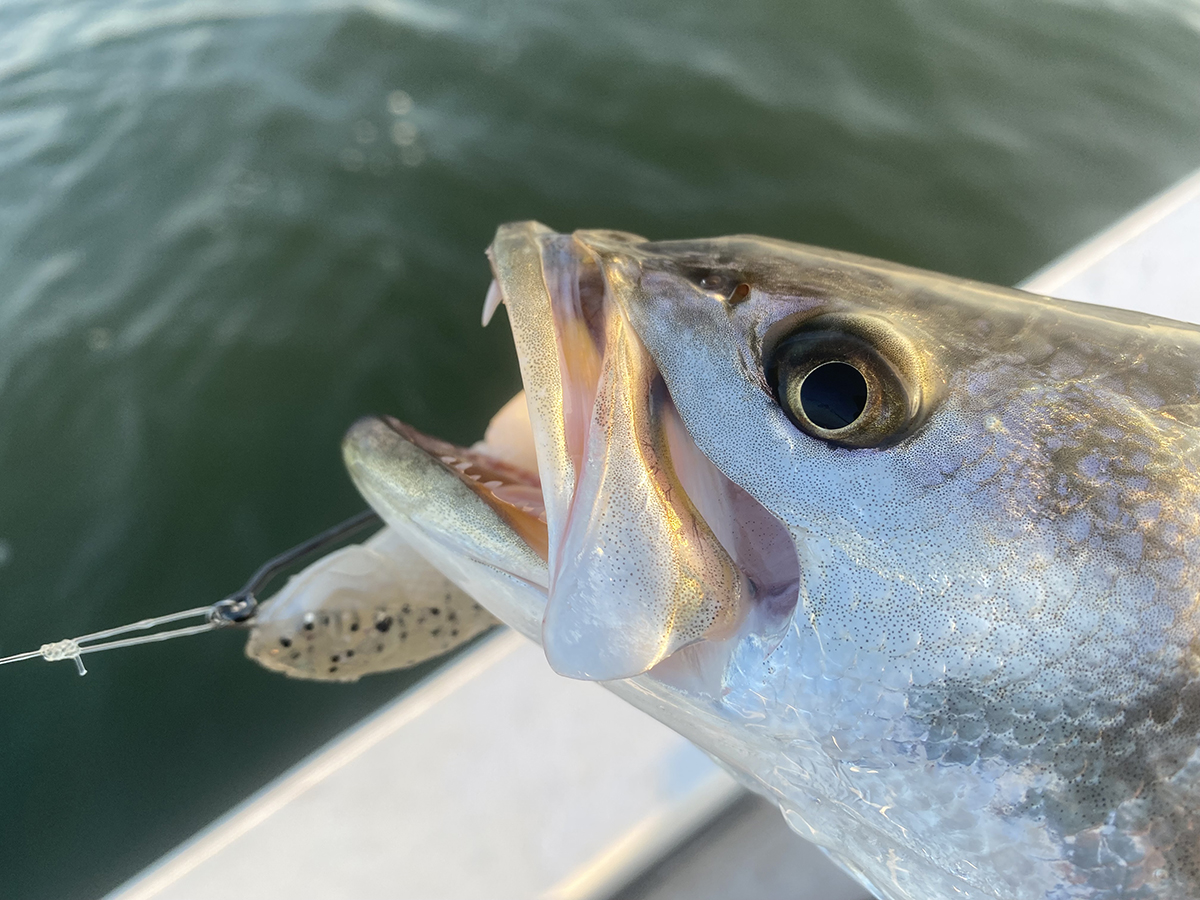 The bird’s mottled coloring allows it to blend into the background. Photo: Sam Bland. |
 |
I was awakened recently in the middle of the night by a driving rain storm so ferocious that it sounded like it was raining pennies on the windows of my house. Fortunately, I was able to go back to sleep until my alarm clock, which is my cat, woke me right on time to get up and head out for my morning exercise.
As I pulled on my running shoes, a new sound now reached my ears, a steady pulsating murmur that was coming from outside. With all the rain, I knew exactly what creature was producing this melody. As I opened the front door, a rush of moist humid hot air greeted me along with a deafening joyous chorus of green tree frogs. You could actually feel the vibrations of their calls. The wetlands on and near my property were full with water and amphibians were quite happy to have their habitat wet again after a long period of little rain.
Supporter Spotlight
It was still dark out as I started my run and after a half mile down the road I could still hear the rowdy frogs. As I jogged on, the songs from the frogs began to fade away and were replaced with other predawn sounds of nature.
Off in the distance I could hear a familiar bird call. A three part call that to me, sounds primal. The first part of the call, the “chuck”, is a click of the bill which is much quieter than the other two parts and is only heard if the bird is sitting on your head. Well, that’s an exaggeration, but the bird needs to be close by. If you are unable to hear the first part of the call you might be fooled into misidentifying this secretive bird. The second two parts of the call are a loud and clear “will’s-widow”. But without the “chuck” it is often mistaken for a whip-poor-will.
Only the male will call to attract a potential mate or to stake out breeding territory. They can pump out 15-30 calls a minute and have been known to call out up to 800 times without stopping.
The call of the Chuck-will’s-widow is one of my favorites, as long as it is in the distance. I once had a Chuck-will’s-widow belt out a repetitive performance just outside my bedroom window during the middle of the night that had me considering throwing a shoe into the tree to shoo it off.
A Chuck-will’s–widow is pretty much inactive during the day. It will sit undetected on the horizontal branches of trees waiting for the sun to set. When this bird settles in on a branch, their cryptic pattern of mottled brown, gray, black and white feathers provides camouflage that allows it to vanish into the tree. At dark, they will take to the skies in pine woods and around marshes searching out flying insects such as moths and beetles. They have even been known to eat bats. Their eyes are adapted with reflective membranes which proved great night vision for hunting in the dark. If their eyes catch the headlights from a car, they will shine a vivid orange similar to the glowing eyes of some mammals.
Supporter Spotlight
Long pointed wings allow them to maneuver quickly as they dart around obstacles chasing the prey. Even though they have a short bill, their mouth can open up quite wide and is equipped with long rigid feathers, called rictal bristles, which funnel the prey into their big mouth. These bristles are evidently pretty important to the bird. Their middle toe is specially adapted into a comb-like structure that is used to preen the bristles, keeping them in proper working order.
When nesting, the female will simply lay the eggs on the ground among the floor litter of leaves or pine needles. While sitting on the nest, her camouflage will render the nest undetectable. Yet, if the nest is somehow disturbed, she will pick up the eggs in her mouth, and one at a time, and move them to a new location.
Due to their nighttime activities, the Chuck-will’s-widow is in a family of birds known as the nightjars. This is because of their nocturnal nature and their call, which can be considered a jarring sound when they call out unexpectedly on a quiet night. This family of birds has also been known as goatsuckers due to an old, strange myth that even had the Greek philosopher Aristotle fooled. In ancient Greece, shepherds tending their goats at night thought that the Chuck-will’s-widow would fly in and suck milk from the udders of goats. The birds were actually flying around the goats scooping up insects that were attracted to the goats. Part of their scientific name is even derived from Latin words that mean “goat milker.”
As I continued my run, I was eventually so close to the bird that I could hear the complete call, “chuck-will’s-widow.” I stopped and began scanning the horizontal tree branches and as the first light of the sun created crisp outlines of the pine trees in the stillness of a new day, I was finally able to spot the silhouette of the bird on a branch about twenty feet up. Unconcerned with my presence, it continued calling a loud, “chuck-will’s-widow, chuck-will’s-widow”, over and over and over. I ran off down the road with the song fading in the distance.







